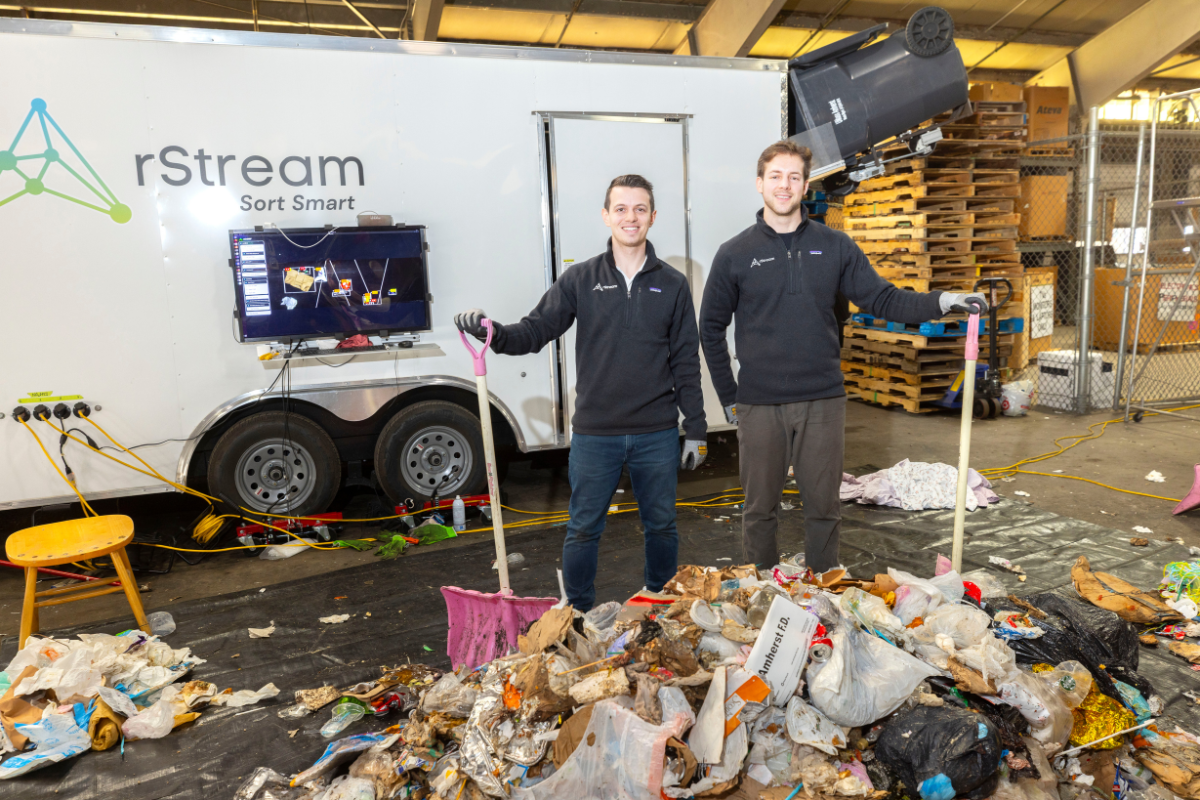
Two graduates of the University of Massachusetts Amherst created a robotics-based sorting trailer that recently was tested at the school. | Courtesy of rStream
The University of Massachusetts Amherst recently conducted a pilot project using a small-scale automated recycling system created by rStream, a robotics-based startup founded by two alumni.
The device, housed in a mobile trailer, uses artificial intelligence to both remove contaminants from recycling streams and recover recyclable commodities. The device can sort 1 ton of waste in an hour, according to a press release.
Although robotics and AI are familiar concepts in the recycling sector, the pilot system provides an alternative to warehouse-size operations. “By not restricting our design focus to industrial scale recycling centers, we have an opportunity to help solve all sorts of losses in the recovery of recyclables that automation typically can’t reach,” said Ian Goodine, co-founder and CEO of rStream, in a written statement.
In addition, rStream aims to separate recyclables out of trash, rather than solely making a cleaner recycling stream. “It’s the worst-kept secret,” Goodine said. “If your goal is sustainable impact, you need to sort the trash, too.” Another goal is to reduce costs for processing recyclables as well landfill fees.
RStream used the weeklong pilot in March to further train the AI to recognize items such as dirty peanut butter jars and greasy pizza boxes, building on the existing data set of recycled materials. As for the hardware, it must be sturdy enough to handle dumpster contents, which are much dirtier than a typical recycling bin. “Even within the known variety (of trash), you get all sorts of things you’re not prepared for,” Goodine said.
The university presents a logical place to train the AI, with 32,000 students and more than 6,000 faculty and staff, all coming from different locations with varying recycling guidelines. “It doesn’t matter how good your signs are: It’s extremely complicated,” Goodine said. “There are a lot of rules, and they’re different based on where you are. There’s no way we’re ever going to be able to educate everybody perfectly.”
By testing this technology on campus, UMass can determine the feasibility of incorporating it into its long-term sustainability plans.
“Waste can take many forms at loading docks and transfer stations, so working with UMass to get us into those spaces is key to modeling what improvements technology can make,” said Ethan Walko, co-founder and chief technology officer of rStream.
Kathy Wicks, director of UMass dining sustainability, added: “This system enables us to provide detailed information to our waste-stream contractor, which in turn will allow them to more easily identify markets for that waste and this moves us closer to being able to have plastic material from campus that can come back around as clothes or other consumer goods featured in the UMass store.”

